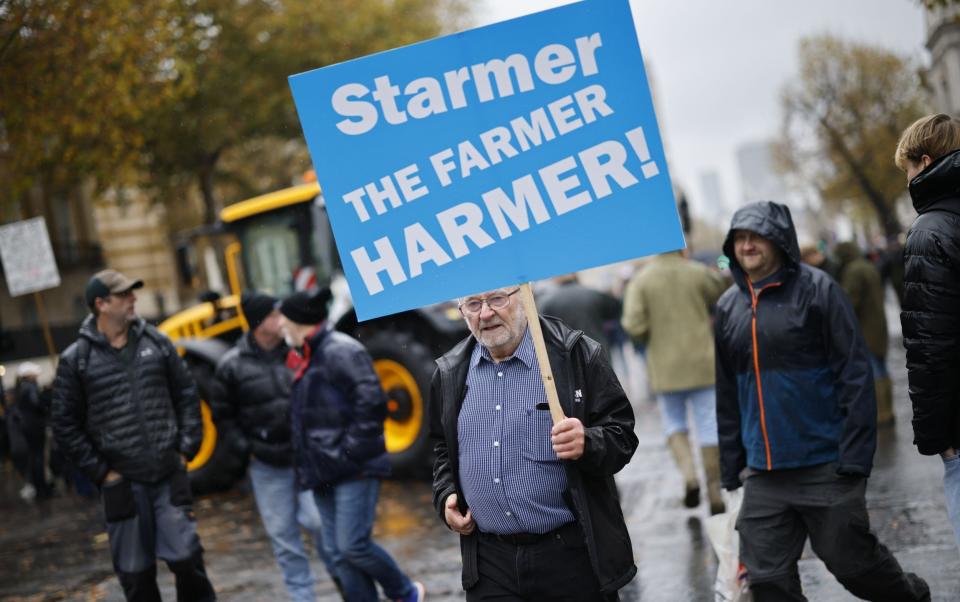The head of a think tank used by the Government to justify its tax raid on farmers has suggested the state could take ownership of land.
Arun Advani led a report for the Centre for the Analysis of Taxation (CenTax) suggesting that the state could become the landlord to tenant farmers.
The report suggested such a move would prevent the loss of tenant farmers as a result of introducing inheritance tax burdens on agricultural assets.
It was released shortly before Rachel Reeves announced that farms worth more than £1 million would be liable for inheritance tax (IHT) from April 2026.
Farming groups have warned that the tax could lead to landlords selling up tenanted farmland to cover their tax bill, forcing tenant farmers out of the industry.

The report from CenTax reads: “A key input for farmers is land, and for a farm to be productive it needs the land to not be fragmented into disconnected small parcels. This sometimes motivates discussions about the need for relief.”
It adds: “Longer payment periods would allow the effective tax rate to be lower, as would the state taking part-ownership of land and becoming the landlord to tenant farmers.”
It suggested a cap on agricultural relief, inheritance tax and business property relief at £500,000 – half the level set by the Chancellor – would improve the fairness of IHT.

Earlier this month James Murray, exchequer secretary to the Treasury, and Daniel Zeichner, the rural affairs minister, defended the tax in The Times, which has caused widespread discontent among farming communities.
They cited CenTax, alongside the Institute for Fiscal Studies, as having suggested that the new farm tax was “reasonable and fair”.
Treasury sources said the comment was in reference to public support for the policy on social media and other platforms since it was announced in the Budget in October.
CenTax has not tweeted since the Budget was released, but Mr Advani has tweeted from his personal account in support of the tax.
Mr Advani, who is the director of CenTax and a professor of economics at the University of Warwick, said the National Farmers Union had overestimated the number of farms that would be hit by the new tax.
Mr Murray was the keynote speaker at a Parliamentary reception held on Nov 11 to officially launch CenTax.
In the speech he said he wanted “to make sure that collaboration between CenTax, Treasury and HMRC continues for many years into the future”.
CenTax says its research “focuses on the characteristics, behaviours and economic impacts of top earners and the wealthy, and the design of taxes affecting this group”.
One of its two core funders is the abrdn Financial Fairness Trust, whose stated aim is “to make the UK a more financially fair place for people on low-to-middle incomes”.
The October report on inheritance tax is part of a project funded by the Nuffield Foundation, which is intended to provide evidence on the potential of raising tax revenue from high-income and high-wealth individuals.

Mo Metcalf-Fisher, director of external affairs for the Countryside Alliance said: “This latest revelation further fuels the growing perception that the Treasury has treated this as a mere accounting exercise, rather than a serious impact assessment on the lives and livelihoods of farmers and the stability of the wider countryside.
“The blatant lack of consultation with relevant stakeholders prior to the Budget announcement is incredibly alarming. The Treasury needs to get back round the table with farming bodies to think again about this policy before it’s too late.”
An HM Treasury spokesperson said: “We remain committed to fully implementing the policy and are not considering mitigations.”
EMEA Tribune is not involved in this news article, it is taken from our partners and or from the News Agencies. Copyright and Credit go to the News Agencies, email news@emeatribune.com Follow our WhatsApp verified Channel





